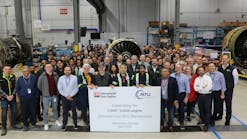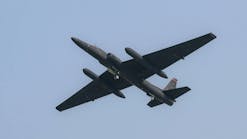Northwest Airlines Inc. wants to make sweeping changes to its pension plan to ease one of its major expenses and possibly make it easier for other major airlines to pay pension obligations.
Through a mix of federal legislation, a freeze on its current pension plans and a new retirement plan -- such as a 401(k) plan -- the airline hopes to get more time to pay off a current $3.8-billion shortfall in its pension plan and move employees to what should be a less-expensive plan.
The transition is key to Northwest's plan to make a profit again -- after losing $2.5 billion since 2001 -- and keep the airline out of Chapter 11, Northwest told its employees in a recent newsletter.
But the airline could face opposition from some of its unions, which are already being asked for $1.1 billion in annual concessions, and from members of Congress who might be reluctant to pass pension legislation directed at the airline industry.
"What we're trying to do here, is to keep everyone whole," Andrea Fischer Newman, Northwest senior vice president of government affairs, said Wednesday. "We're trying to do the right thing."
If Northwest gets what it seeks through legislation and negotiations with its seven unions, the airline's current retirees would not see changes in the size or timing of their payments.
But Northwest employees -- about 8,400 based at Detroit Metro Airport -- would stop accruing benefits through their current pension plan, called a defined benefit program. Northwest would move to what is called a defined contribution plan, which could be set up as a 401(k) plan. Such plans are common among low-cost carriers such as JetBlue Airways and Southwest Airlines Co. Northwest is implementing such a plan for its salaried employees.
In that type of program, employees would make contributions into their retirement funds, and, in Northwest's case, so would the company, Newman said.
Northwest is working with the Air Line Pilots Association to resolve its pension problems. But to achieve the changes it seeks, the airline must convince other unions to freeze its current plan and switch to a new, usually less fruitful plan.
The airline announced that request Tuesday. Northwest is in mediated talks with three of its unions, including the Professional Flight Attendants Association, which is skeptical about the airline's request for more time to pay its obligations.
"If you're robbing from Peter to pay Paul, how are you ever going to get caught up?" asked Jeff Gardner, vice president of the flight attendants union, citing higher fuel costs as another drain on the company's cash.
Northwest also needs to convince Congress to change pension law and allow it more time -- 25 years instead of five, which in Northwest's case has ticked down to three under current federal deadlines -- to pay significant portions of its unfunded pension obligations.
Northwest's proposed changes in federal law would affect other major carriers with similar pension plans, including Delta Air Lines Inc. and American Airlines Inc.
"This is the one piece of the puzzle that we must have federal legislation to solve," Newman said.
But getting more time could be difficult.
"It's not something under consideration at this time," said Kevin Smith, spokesman for U.S. Rep. John Boehner, R-Ohio, chairman of the House Committee on Education and the Workforce.
"We're looking to reform the overall system in a comprehensive manner. We're not looking to give anybody any more relief," Smith said, referring to the 2004 Pension Funding Equity Act, which allowed the airline and steel industries to pay only a portion of their unfunded pension obligations.
That act meant Northwest's payment into its pension plans was $253 million in 2004 and will be $420 million this year. When the act expires in 2006, the airline expects its payments to be significantly higher.
"This proposal would essentially result in smaller payments made to pension plans each year. There is no guarantee the airlines would not file for bankruptcy in the future, leaving pension plans less funded than they would have been," Smith said.
Smith's response illustrates a common tug-of-war between the government and corporations about pensions, said Jim Verlautz, principal at Minneapolis-based Mercer Human Resources Consulting Inc. Corporations will often argue that difficult financial times are "the wrong time to force us to take cash out of operations and put it in the pension plan," Verlautz said.
If paying into the pension plan contributes to a company filing for Chapter 11, its employees won't be guaranteed their full pensions, he said.
Instead, they could be handed to the Pension Benefit Guaranty Corp., a federal agency that insures pension benefits, which would put a cap on payments.
Northwest Chairman and CEO Doug Steenland told employees in a March newsletter that the pension issue is critical to its survival.
"If we do not restore profitability, at some point we will have no other option but to seek protection under Chapter 11," he wrote.
"Bankruptcy would destroy our credit rating, making it more difficult to do business. It would surely result in the loss of more jobs as Northwest turns over the power to make decisions and run its business to the bankruptcy court. It could, in fact, be the beginning of the end for Northwest, as it has for other airlines that originally saw bankruptcy as a way out of a crisis."




